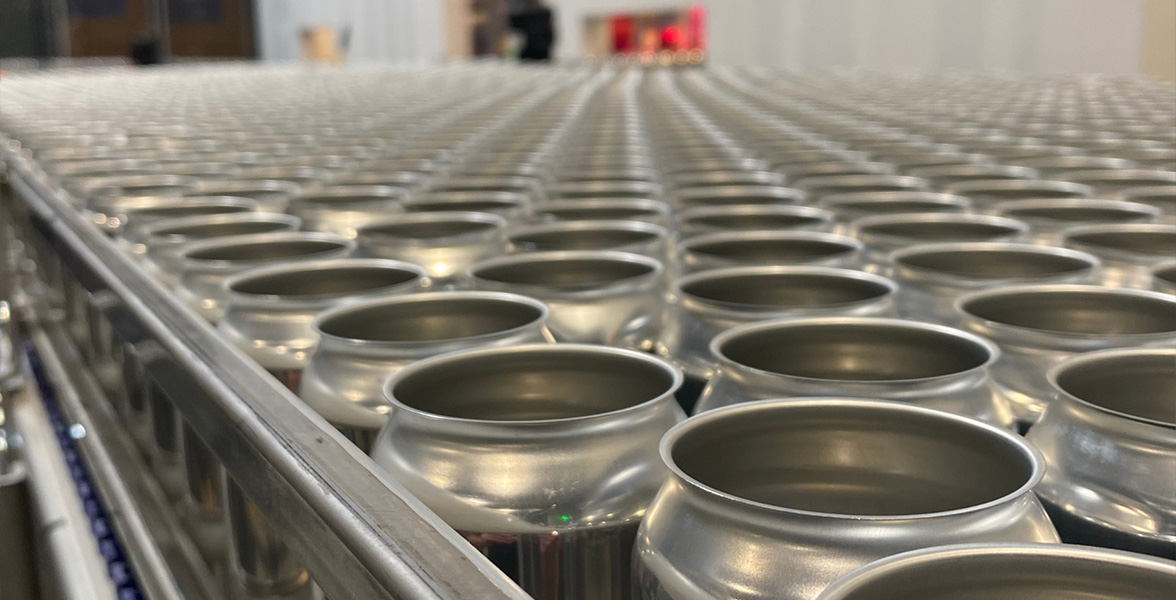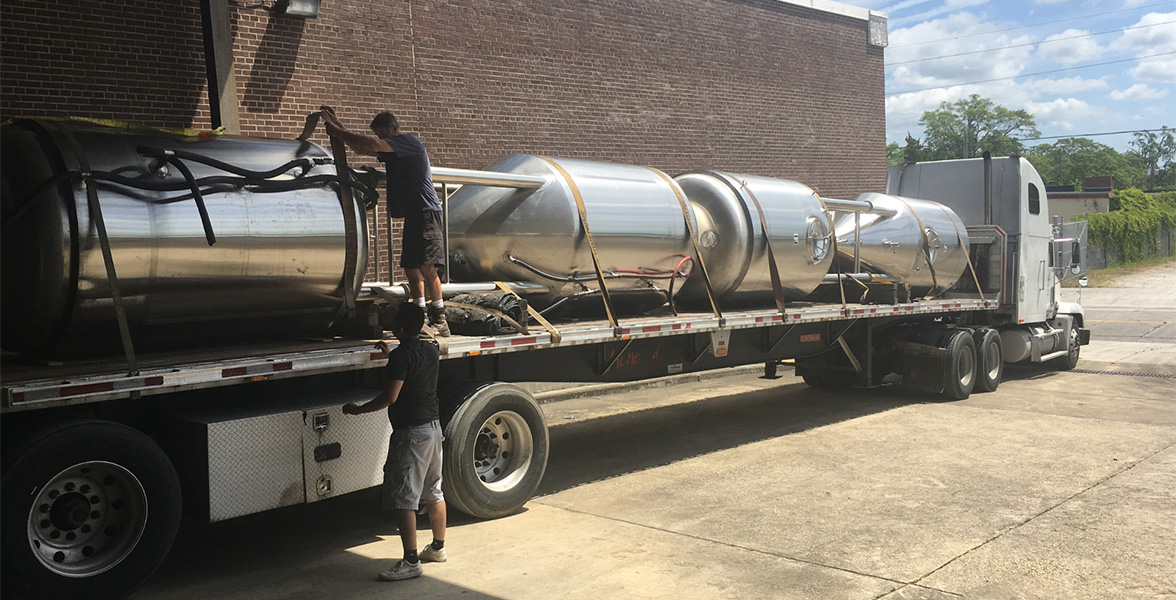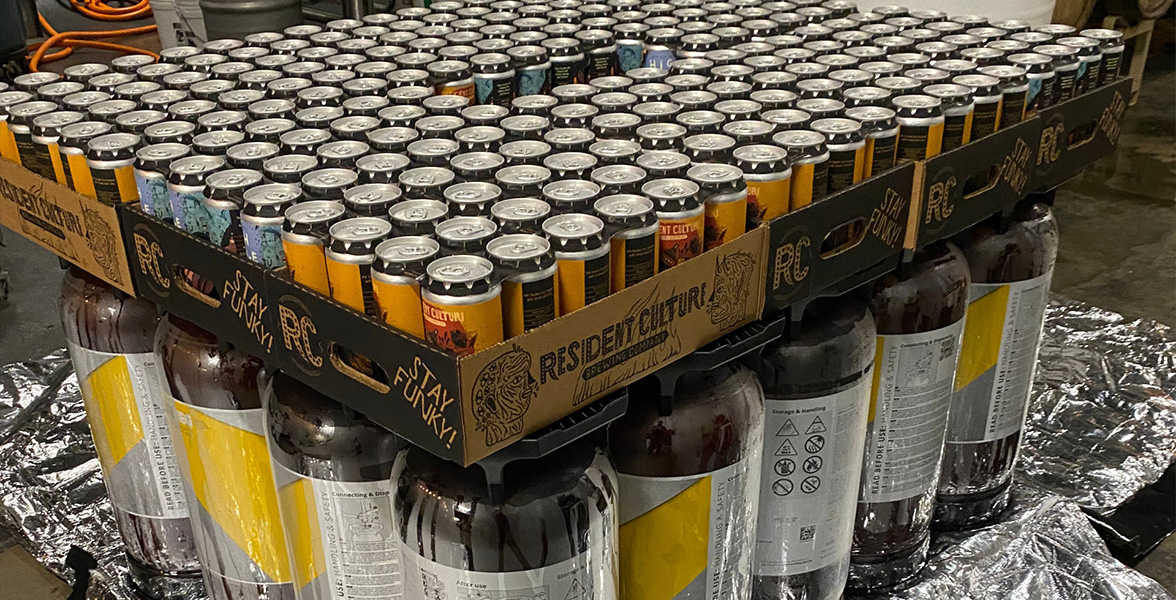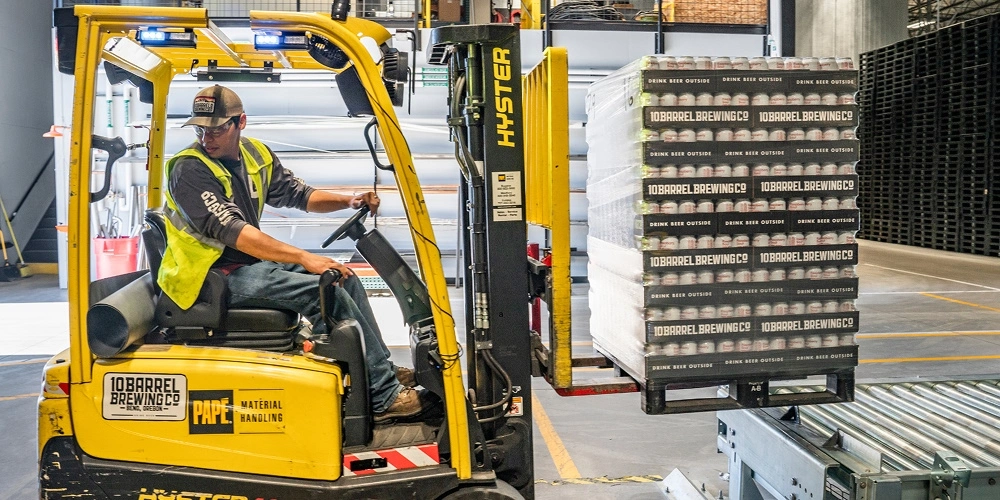Table of Contents
Join our
Mailing List
Stay up-to-date with BREW MOVERS latest news and service offerings.

How to Scale a Small Business in 6 Steps
Published Date: 11 December 2024
Scaling a brewery is a thrilling yet challenging endeavor. Odds are, you’re turning your passion into a career. However, there are plenty of possible obstacles to face without a clear direction, and there’s a large market with which to compete.
Ready to elevate your brewery and surpass the competition? Join over 3,500 craft breweries across North America that scaled up with our services. Here’s how to scale a small business with clear, actionable steps. Beat the competition, improve your ROI, and solidify your position in the market with sustainable growth.
Understanding the Scaling Process for Business Growth
While the beverage and brewery market is large and continues to grow, demand is still high, and audiences are always looking for a new drink to try or a new favorite spot to unwind in. When there’s a new, valuable product or flavor to try, people will flock to it.
Scaling Up Beverage Startups
In terms of scaling beverage startups, we’re talking about reaching and securing an audience, offering a unique beverage that isn’t already popularized, and finding smart solutions for long-term savings.
Overall, it’s important to create and stick to a strong strategy. A beverage startup isn’t a simple task, although it can be made simpler with clear guidelines, powerful partners, and attention to detail. The following steps for scaling a business will help finesse an actionable plan for business growth.

How to Scale a Startup Business for Future Growth
Of new businesses that opened in 2018, one-fifth failed within one year, and almost half failed after five years. While there are many reasons a business might fail (poor branding, a small audience, and the wrong location, to name a few), lack of strategy, knowledge, and industry experience is often a big factor.
Follow these steps below to learn how to scale a startup business in the beverage industry and be one of the successful startups.
Tip 1: Focus on Category Growth
Startups should focus on promoting a drink category, as well as the brand. While branding is still crucial, to reach audiences and secure loyal customers, they need to know about and be enticed by a growing drink category.
If the business can’t grow through categories, it won’t be valuable to customers. A beverage startup must have the potential to grow within its categories. For instance, if the current category is “Energy Drinks” and the business identifies a demand for healthier alternatives, it could create a new category: “Smart Energy Drinks,” featuring more natural ingredients.
When building a new category, it’s more important to focus on product promotion and not the promotion of the brand. A successful category means more opportunities for the business to increase sales and reach a wider audience.
Tip 2: Prioritize Industry Expertise (Not New Internal Processes)
Startups are sometimes tempted to reinvent processes while building a business. Not only is this a lot of responsibility to take on when the focus should be on starting a beverage company, but it’s also a reason new businesses fail. Don’t try to reinvent processes unless you’re an industry expert and have the tools and resources to make it happen seamlessly.
Tap into the expertise of seasoned professionals from the beverage industry instead. Brands that acknowledge and learn from other successful experts in the industry are more likely to succeed. As a startup, focus on proven methods, rather than reinventing the wheel.
Startups often face numerous challenges, and adopting established practices can provide the stability needed to navigate these fragile early stages. By leveraging reliable strategies, you can set a strong foundation for long-term success.
Tip 3: Optimize Distribution Strategy
Startups face many challenges, including distribution, such as buyer turnover and partner selection. However, we have the answer to efficient supply chains. With so many possible distribution channels available to startups, it can be confusing and overwhelming to make a decision that can impact the long-term success of the business.
Don’t underestimate the value of an expert distribution partner. They can create a cohesive route to market, ensuring you have the ingredients, supplies, and equipment you need. The distribution system should be an advantage for a business, not a pitfall that costs more money, resources, and time. Let us take on the logistics of supply chain management so you can focus on your end product.

Tip 4: Invest in Product Experience
Some industries do exceptionally well when confined to the digital world. The beverage industry isn’t (and shouldn’t be) one of them. After all, how can a consumer experience a beverage through a screen? Beverages are meant to be tasted, savored, and experienced in an enjoyable, relaxing environment.
Improve consumer connection by ensuring quality beverages are always available when they want them. Your business will be memorable if the right drink is available at the right time for your audience. Don’t rely on a digital marketing plan without a physical presence, but also don’t forget to continue marketing your beverage startup no matter the platform.
Tip 5: Align with Market Timing
Scaling a small business also depends on proper timing. For instance, when a brand plans to launch a new beverage line, selecting the optimal timing is critical. Consider market trends and the needs and expectations of your audience.
Timing has to do with waiting patiently for the right opportunity, and then having the budget, resources, and plans ready to take advantage of the moment. Success in any industry often depends on preparation and strategic planning.
The most successful companies take a long-term approach, carefully outlining their goals for the next five to ten years. Instead of acting impulsively, they focus on developing the right products. This thoughtful, forward-looking strategy ensures they’re positioned to deliver meaningful results and lasting value to customers.
Tip 6: Simplify Your Go-to-Market Strategy
Figuring out how to grow a small business can be complicated. Focus first on creating something great people will love. This framework encompasses attractive packaging, exceptional taste, competitive pricing, and captivating promotions, and your brand can target and satisfy more people.
Simplifying strategies is key to success. Avoid narrowing your focus to niche flavors, single ingredients, one platform, or a limited consumer base. By ensuring your brand and beverages consistently exceed customer expectations, you can achieve a broader reach and attract a larger, more diverse audience. With a commitment to understanding industry trends and delivering excellence, you can position your brand as a leader in meeting customer demand and driving growth.

Scaling Up a Business with Brew Movers
Let’s recap how to scale a small business in six steps:
- Focus on category growth over brand growth
- Prioritize industry expertise instead of reinventing the wheel
- Optimize the distribution strategy with a partner, such as Brew Movers
- Invest in the product experience, not just digital marketing
- Align with market timings and be patient
- Simplify your go-to-market strategy to appeal to the masses
Focus on the passion and the delicious beverages. We’ll focus on the logistics. We’re your expert movers for ingredients, equipment, tanks, and more. Contact us today to get started with smart shipping solutions.




